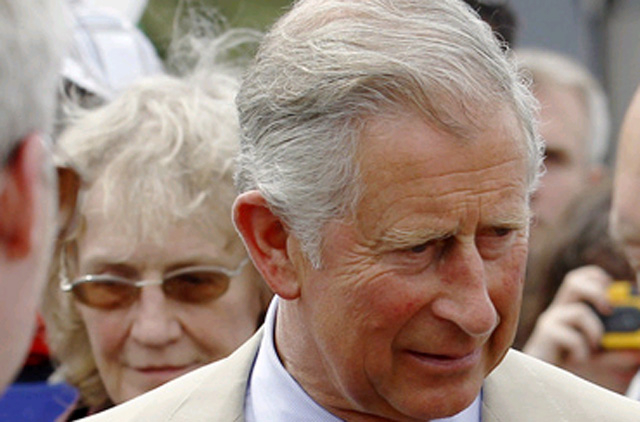There are times, and this is one of them, when the Prince of Wales seems to have made the transition from heir to the throne to flaky elder statesman without actually stopping to do the job to which he was born. His conversation in Canada with a former Polish refugee, when he reportedly compared Russian President Vladimir Putin’s actions over Ukraine to Adolf Hitler’s march across Europe, represents his latest dubious sortie into public affairs.
He can, of course, plead mitigating circumstances. Both good manners and convention dictate that remarks between royalty and commoners remain private. Prince Charles would not necessarily have expected this, or any other exchange, to become public. Increasingly, though, this understanding is breaking down and the more controversial the remarks, the more likely they are to be translated into cold hard print. And the trouble is that, while the Putin-Hitler comparison may look like the sort of gaffe his father, the Duke of Edinburgh, has long specialised in, it is a bit more serious than that.
This is, first of all, because he is the heir and not the consort, and second of all because what he said was not obviously a gaffe. It was in fact an echo of a line employed, among others, by former US secretary of state, Hillary Clinton, in response to Russia’s annexation of Crimea, and the prince may well have meant it. He has visited Ukraine and is familiar with the political dynamics. It is not a far-off country of which he knows little. He knows enough not to make mistakes.
However his remarks were intended, there could — as was immediately noted — be some untoward diplomatic fallout. The prince is due to join US and European leaders at the commemoration of D-Day in Normandy next month. Putin, is also expected. In the light of Russia’s widely condemned — and illegal — annexation of Crimea, Putin’s presence at the ceremonies was likely to be uncomfortable. It did not need some incautious remarks from Prince Charles to make the atmosphere any more awkward. Anticipated encounters at the D-day anniversary, however, are not the chief reason why this intervention by the Prince of Wales is to use the diplomatic euphemism unhelpful. It could be argued that the Russian president has brought any coldness he may meet at Normandy upon himself. Far more serious — and probably quite unintended — is the possible effect on the moves currently under way to avert a civil war in Ukraine.
As so often, it is the timing quite as much as the substance of what was said, that makes these remarks so potentially damaging. For the past two weeks, there have been intensive efforts, led by Germany, to halt the violence and defuse tensions in Ukraine. The east-west rhetoric and propaganda that raged for weeks has been far less in evidence recently. When was the last time we heard William Hague lambasting the Russians? Putin announced last weekend, in fact for the third time, that Russian troops were being withdrawn from Ukraine’s eastern border. He has also written to European leaders, offering reassurance about energy supplies.
Presidential elections will be held in Ukraine on Sunday. Russia is on record as conditionally supporting them. A record number of monitors are being sent to ensure that the process is as free and fair as possible. This vote is the best chance for Ukraine to avoid the bloodbath that was starting to look inevitable. The last thing anyone needed was an incautious remark wafting in from across the Atlantic that reminds everyone, inside and outside Ukraine, of the age-old divisions that threaten to rip the country apart.
— Guardian News & Media Ltd
Mary Dejevsky is a writer and broadcaster. She is a former foreign correspondent in Moscow, Paris and Washington, and a special correspondent in China and many parts of Europe.













